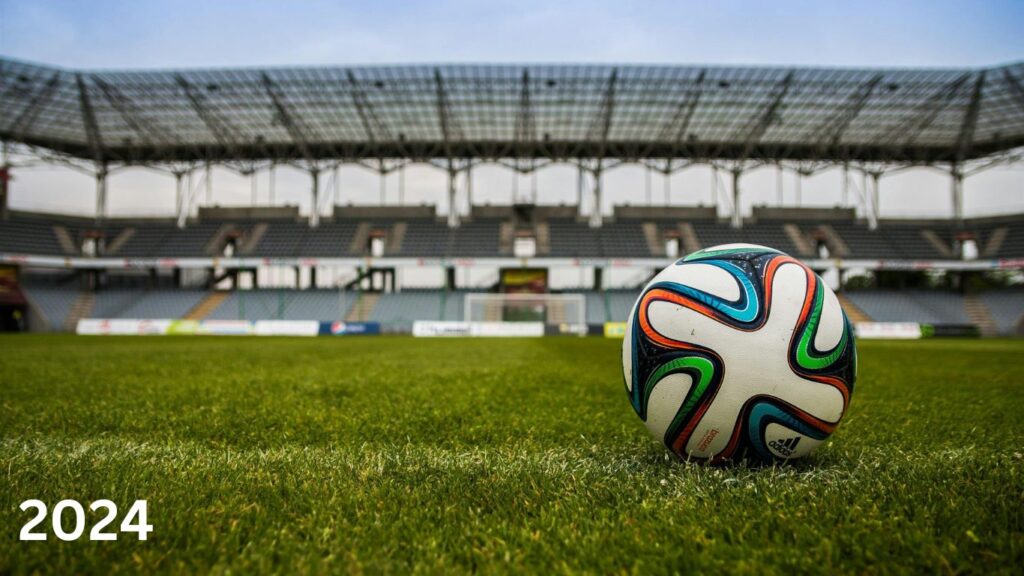
Introduction:
As the world’s most popular sport, football (or soccer, depending on where you’re from) captivates millions of fans around the globe. At the heart of international football lies the FIFA World Rankings, a barometer of a national team’s performance on the global stage. In 2024, these rankings offer insights into the ever-evolving landscape of football prowess, showcasing the rise of emerging powers and the enduring dominance of traditional giants.
Analyzing the Top Contenders:
Topping the FIFA World Rankings in 2024 is a coveted position, symbolizing excellence and consistency. As of the latest update, traditional powerhouses like Brazil, Germany, and Argentina continue to assert their dominance, buoyed by rich footballing legacies and talent pipelines. However, the gap between these perennial favorites and rising challengers has been narrowing in recent years.
In the realm of international football, certain nations perennially command attention for their prowess on the field. Traditional powerhouses like Brazil, Germany, and Argentina consistently feature at the summit of the FIFA World Rankings. Renowned for their rich footballing legacies, these teams boast a blend of skill, tactical acumen, and star talent that sets them apart. However, their dominance faces increasing challenge from emerging contenders, reflecting the evolving landscape of global football. Despite the enduring presence of these giants, the gap between them and rising challengers has been narrowing, ushering in an era of heightened competition and unpredictability.”
Surprises and Upsets:
One of the most intriguing aspects of the FIFA Rankings is the emergence of unexpected contenders. Nations that were once considered underdogs are now making waves on the international stage. Take, for instance, the meteoric rise of teams like Belgium and Croatia, which have steadily climbed the rankings through a combination of astute management, tactical brilliance, and a pool of talented players.
The world of football thrives on unpredictability, where underdog stories and unexpected triumphs capture the imagination of fans. In the FIFA Rankings of 2024, the emergence of unexpected contenders has become a defining narrative. Teams like Belgium and Croatia have defied conventional wisdom, ascending the rankings through a combination of strategic brilliance and a reservoir of talent. These rising stars challenge the status quo, shaking up the traditional hierarchy of footballing powers and injecting a sense of excitement and possibility into the sport.”
Shifts in Regional Dominance:
Beyond individual team performances, the FIFA Rankings also reflect broader shifts in regional dominance. While European powerhouses traditionally dominate the top spots, South American teams continue to showcase their flair and resilience. Moreover, the growing influence of African and Asian football cannot be overlooked, with nations like Senegal, Nigeria, Japan, and South Korea making significant strides in recent years.
Beyond individual team performances, the FIFA Rankings reflect broader trends in regional footballing prowess. While European powerhouses continue to assert their dominance, there has been a noticeable rise in the influence of South American, African, and Asian nations. Teams from these regions, such as Senegal, Nigeria, Japan, and South Korea, have made significant strides, showcasing their skill, resilience, and tactical innovation on the global stage. These shifts signal a diversification of footballing talent and tactics, enriching the sport with new perspectives and narratives.”
Factors Influencing Rankings:
Several factors contribute to a nation’s position in the FIFA Rankings. These include performance in official FIFA-recognized matches, the strength of opponents faced, and the significance of tournaments participated in. Additionally, the ranking system considers the results of matches over a rolling four-year period, providing a comprehensive assessment of a team’s long-term performance.
The FIFA Rankings are not solely determined by wins and losses on the field. A multitude of factors shape a nation’s position in these rankings. Performance in official FIFA-recognized matches, the caliber of opponents faced, and the significance of tournaments participated in all play crucial roles. Additionally, the ranking system accounts for results over a rolling four-year period, offering a comprehensive evaluation of a team’s long-term performance. This intricate blend of criteria ensures that the FIFA Rankings reflect the true measure of a nation’s footballing prowess and consistency.”
The Road Ahead:
Looking ahead, the FIFA Rankings will undoubtedly continue to fluctuate as teams jostle for supremacy on the global stage. Major tournaments such as the FIFA World Cup and continental championships will serve as battlegrounds where nations vie for glory and ranking points. Furthermore, the emergence of new talent, strategic innovations, and geopolitical factors will shape the footballing landscape in unpredictable ways.
As the footballing world marches forward, the FIFA Rankings offer a glimpse into the future of the beautiful game. Major tournaments like the FIFA World Cup and continental championships will serve as battlegrounds where nations vie for glory and ranking points, shaping the global footballing landscape. Emerging talents, strategic innovations, and geopolitical dynamics will continue to influence rankings, driving both established powerhouses and rising challengers to new heights. As fans eagerly anticipate the next update, the journey ahead promises excitement, drama, and the relentless pursuit of footballing excellence.”
Conclusion:
The FIFA Football Rankings for 2024 offer a snapshot of the ever-evolving dynamics of the beautiful game. While traditional powerhouses maintain their grip on the upper echelons, the rise of new contenders signals a shifting paradigm in global football. As fans eagerly await the next update, one thing remains certain: football’s capacity to surprise, inspire, and unite nations will continue to captivate audiences worldwide.
Leave a Reply